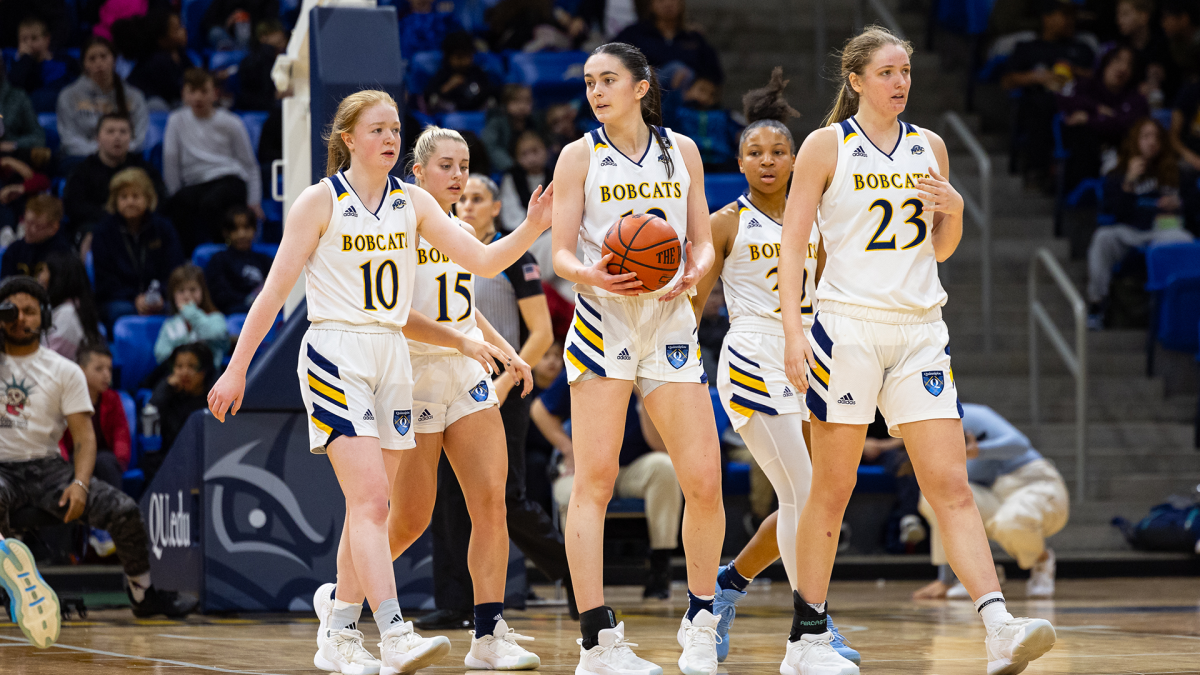From Quinnipiac to the Academy Awards
March 8, 2019
Last month, David Rabinowitz accepted his first Academy Award from presenters Brie Larson and Samuel L. Jackson. But less than ten years ago, Rabinowitz was crossing the Quinnipiac University quad on his way to another media production class.
Rabinowitz became the first Quinnipiac alumnus to receive an Oscar on February 24, when “BlacKkKlansman,” a movie he co-wrote with writing partner Charlie Wachtel, took home the statue for Best Adapted Screenplay.
Screenwriting was a passion for Rabinowitz long before he arrived at Quinnipiac.
Road to Success
Since he was a child, Rabinowitz loved film, citing “Jurassic Park” as the film that first captured the “magic of movies” for him when he was in first grade.
In high school, he began immersing himself in the field by watching indie films and getting involved with creative writing.
“Making a movie is hard, and it takes a lot of resources: time, people,” Rabinowitz said. “But writing… that doesn’t take anything. You just have to sit down and type. And once I saw that it was actually something you could do, I just started writing.”
According to Rabinowitz, his first screenplays were “terrible.” But as a high school student with a passion for film, it was addictively fun.
Once he reached Quinnipiac, Rabinowitz had the opportunity to watch one of his films get brought to life when his script became the Quinnipiac Film Society’s first ever production. His college experience also taught him about the practical side of filmmaking, from lighting to editing, which helped him land jobs and freelance work after graduation.
Throughout his high school and college years, he continued to write with Wachtel. Lightning struck for the pair when they discovered Black Klansman, a memoir about Ron Stallworth, a black detective who went undercover to investigate the KKK.
Their passion for the story and prior interest in the topic led the pair to reach out to Stallworth in order to adapt the book to the screen.
“The thing that struck me right off the offset is, it’s this stranger than fiction story. Some of these things that happened to him seem like they’ve been made up, but they actually did happen,” Rabinowitz said. “Also, Charlie and I have always just been separately… fascinated and terrified by the Klan. And we were always kind of interested in doing something in that world.”
Early on in the process, the pair joked that Spike Lee would direct “BlacKkKlansman,” as they were both huge fans of his movies. Through Hollywood connections and a little luck, their joke became a reality when Lee signed on the direct the film in 2017.
“I remember sitting in my kitchen preparing the… file to be sent to Spike… and I was going through page by page, just making sure the formatting was right, being super self-conscious about this file that I was about to send to Spike Lee,” Rabinowitz said. “And after that, we just handed it off. It was like handing the baton off.”
Although the writing duo got updates from the producers, they didn’t see the full film until it premiered at the Cannes Film Festival the following year.
“The reaction to the film after is screened, and the first reviews came in… that was the first indication for us that things were going to go well,” Rabinowitz said.
That might have been an understatement, as the film found critical success in the months that followed, with industry veterans telling Rabinowitz that the movie had a chance for awards success.
The accolades eventually rolled in, culminating with an Oscar nomination for Best Adapted Screenplay.
The Oscars
At the awards show, Rabinowitz recalls the buzzing live television energy as he took his seats behind the film’s producer Jordan Peele and his wife Chelsea Perreti.
“You look around you and… when you’re faced in a certain direction, there’s celebrities everywhere you look, and it’s kind of crazy,” Rabinowitz said.
However, the anticipation and nerves about his award made it difficult for him to focus throughout the ceremony.
“The whole time I was more focused on when was our category going to come up, and am I going to be able to go to the bathroom on time,” Rabinowitz said with a laugh.
Eventually, the category was announced and his anxiety peaked as Samuel L. Jackson and Brie Larson took to the stage. But he was overcome with a rush of emotion as he noticed Jackson’s telling reaction.
“He kind of yelled out a little bit. We knew in that moment, he wouldn’t have had that reaction for anyone besides Lee. It was just kind of an amazing thing… I kind of blacked out a little bit,” Rabinowitz said.
After accepting the award, the crew mingled with Larson as they walked backstage.
“She was super excited for us… as if she had won,” Rabinowitz said. “And she started to give us some advice. She said, ‘This isn’t gonna make sense for a long time, so just try to enjoy it.’”
After the photo ops, the group couldn’t return to their seats until a commercial break. They decided to make the best of it by taking tequila shots with Larson.
“It was just a really cool way of adding onto the experience of actually winning,” Rabinowitz said.
Looking Ahead
Rabinowitz and Wachtel are showing no signs of slowing down after their win, with two television projects and two features in the works.
Their projects are wide-ranging, with one television show set in the world of college basketball and one feature film illustrating the origin of the United States Federal Witness Protection Program.
For those who hope to follow in his footsteps, Rabinowitz recommends moving to Los Angeles as soon as possible.
“The reason we were able to get the script to the right person is because [Wachtel] worked as an assistant in Hollywood and made contacts. Without that, I don’t think we would have been able to get the script into the right hands.”
On the creative side, he adds that the only way to improve at writing is to write – a lot.
“Show your stuff to people and get feedback, embrace the feedback and keep going,” Rabinowitz said. “It doesn’t matter right now if it’s good. It matters that it gets written.”
Looking ahead, Rabinowitz has a long list of directors and actors that he would love to see bring his work to life, but he notes that the unpredictable nature of the business prevents him from narrowing it down.
“So many variables have to come together [to get a film produced], you kind of sit back and hope it works out,” Rabinowitz said.
With an Academy Award sitting in his house, it is clear that things have worked out for Rabinowitz.







